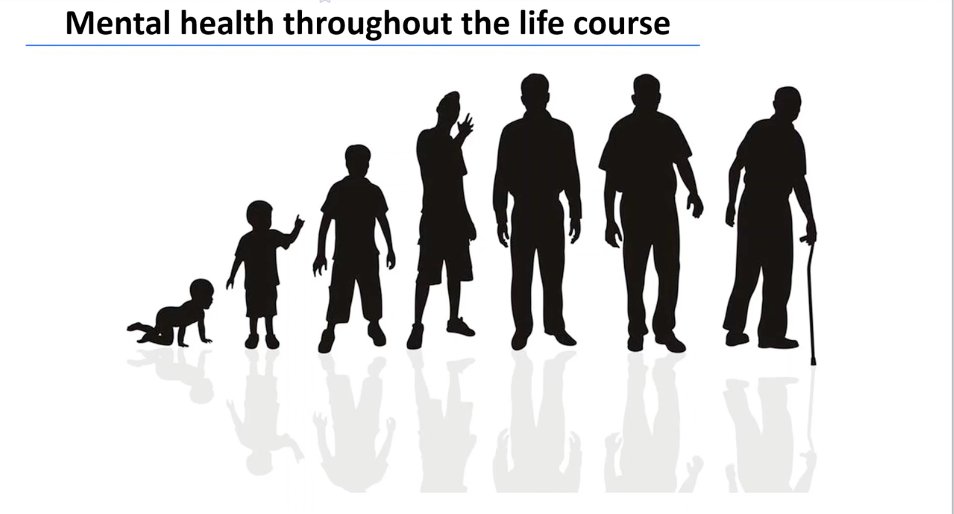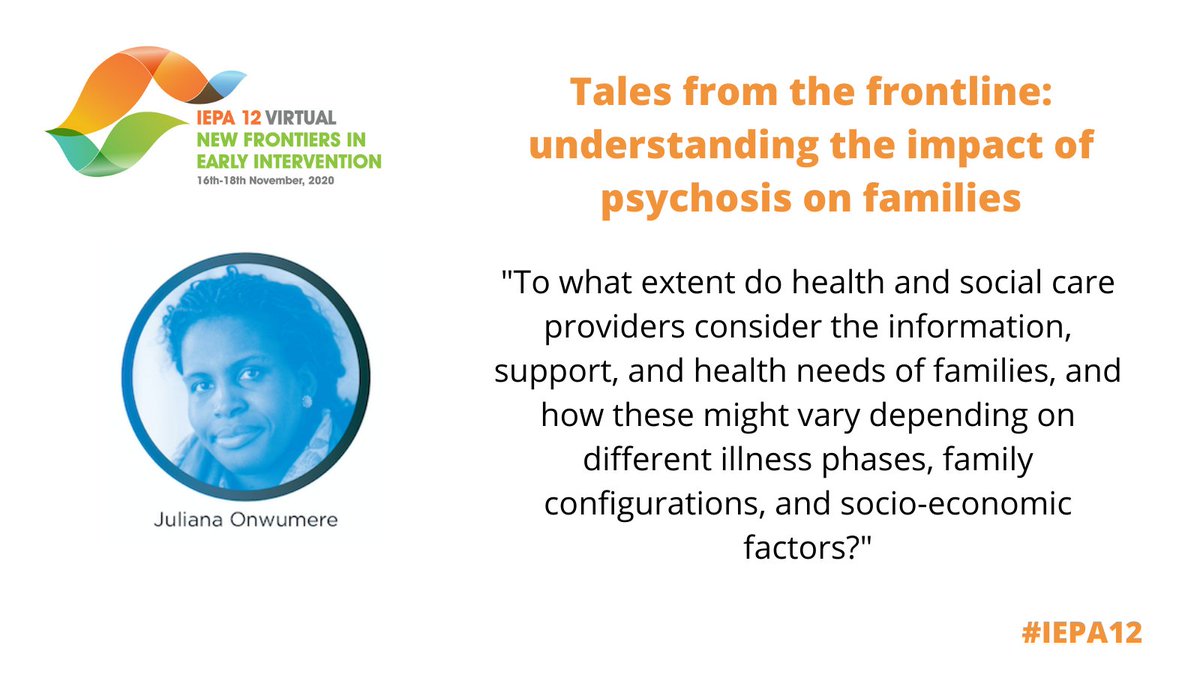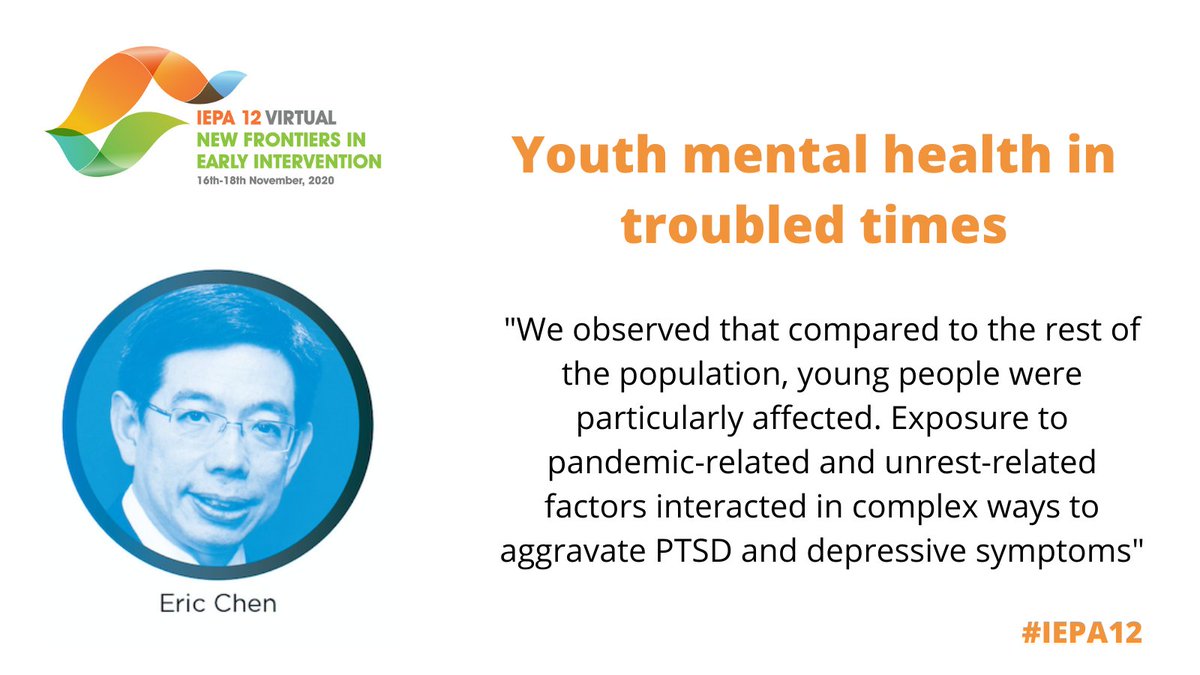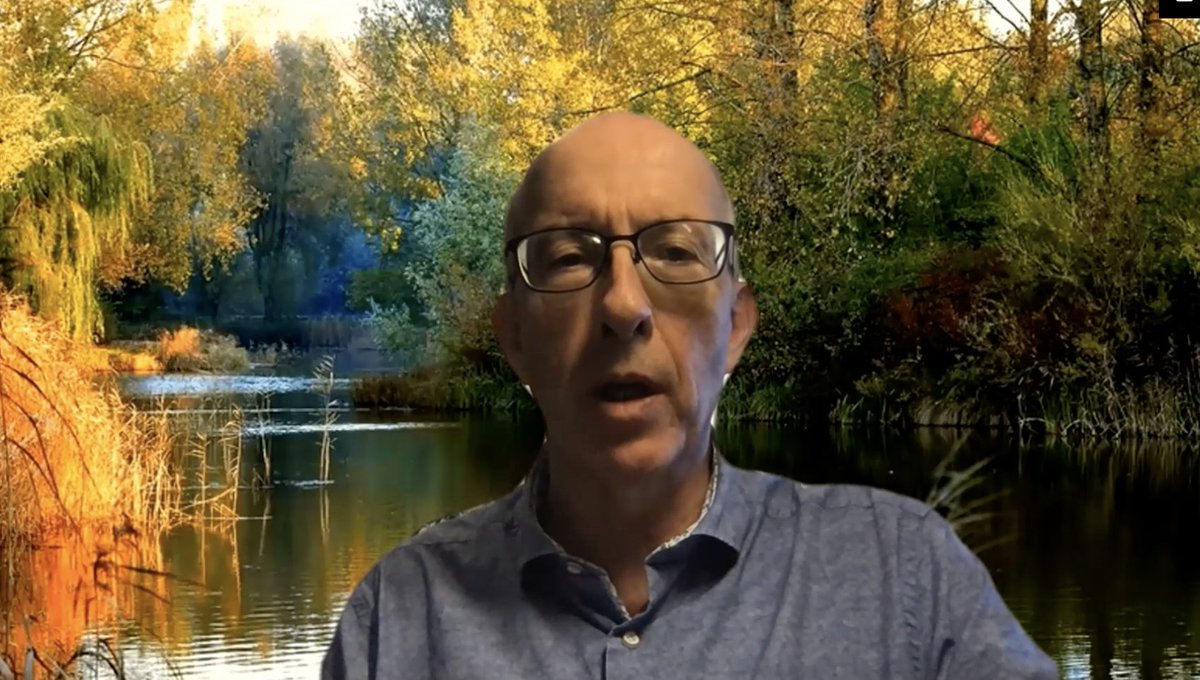
Our first speaker in this #IEPA12 session is Cristiane Duarte (not on Twitter) from @CU_ChildPsych @ColumbiaPsych who will be talking to us about: Intergenerational Psychiatry: A New Look at a Powerful Perspective #IEPA12 
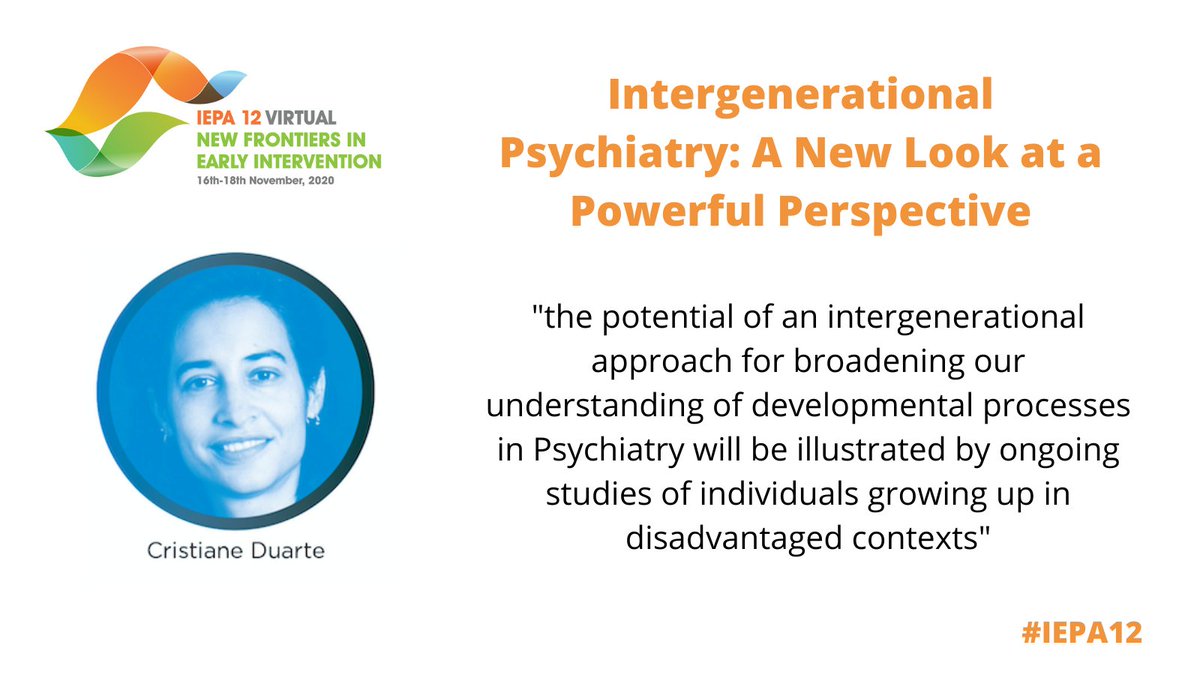
Cristiane Duarte is an expert in the development of mental disorders in children, adolescents and young adults #IEPA12
Intergenerational Psychiatry
Duarte is going to talk about:
-definition, animal & human evidence
-role of adversities & perinatal period
-expanding our hypotheses (e.g. mechanisms of transmission)
-the Center for Intergenerational Psychiatry
#IEPA12
Duarte is going to talk about:
-definition, animal & human evidence
-role of adversities & perinatal period
-expanding our hypotheses (e.g. mechanisms of transmission)
-the Center for Intergenerational Psychiatry
#IEPA12
Intergenerational processes in psychiatry (a definition)
-disorder related phenotypes in one generation
-following manifestation of a psychiatric disorder, or the exposure to adversity in a prior generation
#IEPA12
-disorder related phenotypes in one generation
-following manifestation of a psychiatric disorder, or the exposure to adversity in a prior generation
#IEPA12
Why should we study intergenerational processes in psychiatry?
Knowledge about the interaction of genes and environments across generations, over consecutive life courses, can:
-advance knowledge about aetiology
-improve treatment & prevention of mental disorders
#IEPA12
Knowledge about the interaction of genes and environments across generations, over consecutive life courses, can:
-advance knowledge about aetiology
-improve treatment & prevention of mental disorders
#IEPA12
Duarte begins by presenting the “quite strong” animal evidence for intergenerational transmission in psychiatry #IEPA12 

There are 3 lines of important human research in intergenerational psychiatry, says Duarte
-familial high risk studies
-intergenerational effects of trauma
-fetal programming studies
#IEPA12
-familial high risk studies
-intergenerational effects of trauma
-fetal programming studies
#IEPA12
There are many intergenerational psychiatry hypotheses worth testing, says Duarte
-advances in fetal/perinatal brain assessments
-steady progress in molecular psychiatry
-data science improvements
#IEPA12
-advances in fetal/perinatal brain assessments
-steady progress in molecular psychiatry
-data science improvements
#IEPA12
Intergenerational psychiatry: a new look at a powerful perspective
Open Access perspective piece by Duarte, Monk, Weissman & Posner (2020) in World Psychiatry doi.org/10.1002/wps.20… #IEPA12
Open Access perspective piece by Duarte, Monk, Weissman & Posner (2020) in World Psychiatry doi.org/10.1002/wps.20… #IEPA12
How does adversity that happens in one generation continue and affect the next generation?
-adverse experiences
-chronic biomedical change
-altered intrauterine environment
-disrupted parent-child bonding
-cognitive and emotional development and wellbeing
#IEPA12
-adverse experiences
-chronic biomedical change
-altered intrauterine environment
-disrupted parent-child bonding
-cognitive and emotional development and wellbeing
#IEPA12

If we want to expand the intergenerational transmission model, we need to focus on parental exposure to adversities preceding pregnancy and transmission mechanisms that may not rely exclusively on the gestational environment, says Duarte #IEPA12
Duarte is now reminding us of Vincent Felitti’s work on Adverse Childhood Experiences (ACE), e.g. Relationship of Childhood Abuse and Household Dysfunction to Many of the Leading Causes of Death in Adults: The Adverse Childhood Experiences (ACE) Study doi.org/10.1016/S0749-…
The Boricua Youth Study (cohort study), which began in 2001, seeks to understand the experiences of Puerto Ricans living in the US childadolescentpsych.cumc.columbia.edu/professionals/… #IEPA12
Several papers from the Boricua Youth Study have shown that adverse childhood experiences are related to negative outcomes in adulthood (e.g. risky sexual behaviour, substance misuse, sleep, sensation seeking, suicide attempt and ideation, perceived strees) #IEPA12
There is a cyclical nature to these processes, says Duarte. It’s not just that ACEs can lead to mental health problems, but also that mental illness (e.g. ADHD) could make one more likely to be exposed to adversities #IEPA12
The ECHO study (the next generation of the Boricua Youth Study) is trying to answer how the adverse experiences of their parents in their childhood are related to brain development in the next generation? #IEPA12
What are the specific mechanisms that could explain how adverse childhood experiences in one generation could lead to mental health problems in offspring? Could prenatal inflammation play a role? asks Duarte #IEPA12
Duarte is now presenting some of the potential pathways that could lead to fetal programming #IEPA12
There may also be additional transmission mechanisms that do not depend on the gestational environment, says Duarte, e.g. epigenetic changes (adversity in fathers), or vertical transmission (via microbiome) #IEPA12
The new Center for Intergenerational Psychiatry aims to be a scientific incubator for novel intergenerational research and methods @CU_ChildPsych @ColumbiaPsych #IEPA12
Read more research by Cristiane S. Duarte #IEPA12 pubmed.ncbi.nlm.nih.gov/?cmd=Search&te…
Now we have a live Q&A with Cristiane Duarte #IEPA12
An audience member asks "Could you tell us a bit more about paternal adversity?". Duarte believes that paternal adversity is very important as well, though the level of evidence we have so far is mainly from animal studies #IEPA12
Next question: "The ethical implications here are huge, and some very troubling - the findings could be used to further fuel racism and classism, how are you avoiding this?". #IEPA12
Duarte responds that she thinks about this a lot. Her approach is to look at intergenerational processes not as fate or destiny, but as a trajectory that is possible to change or prevent #IEPA12
Another audience member asks "Does your work also look at the effect of protective factors on intergeneraltional mental health?" Duarte responds that it absolutely does and once mechanisms are clearly identified, it may be easier to pinpoint the protective factors #IEPA12
Another audience member asks "Do you think we should train family psychiatrists rather than different specialists to treat different generations?" Duarte says absolutely - this is where we all should be going, and this would be the dream! #IEPA12
• • •
Missing some Tweet in this thread? You can try to
force a refresh





